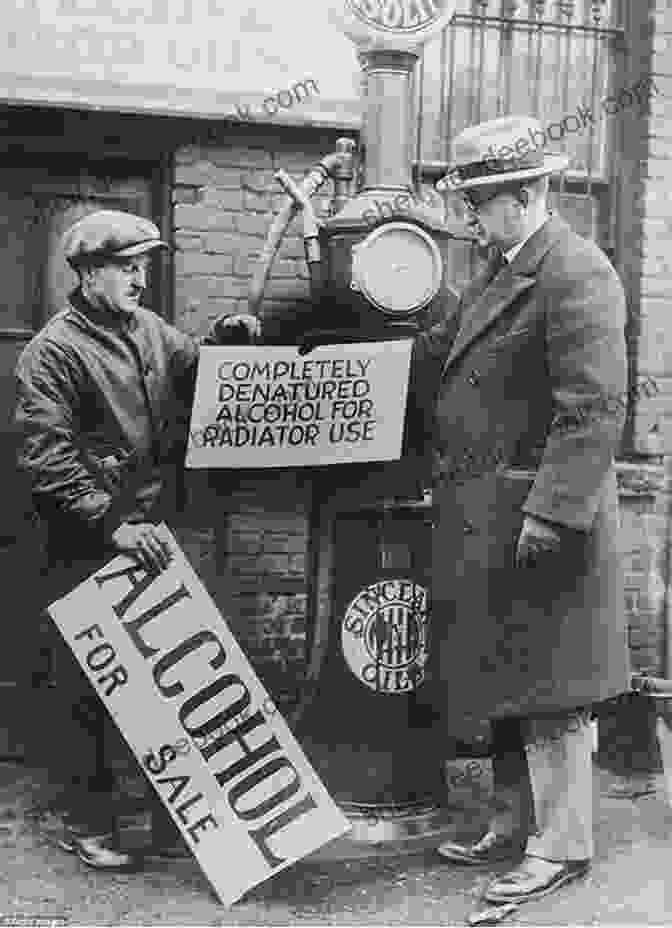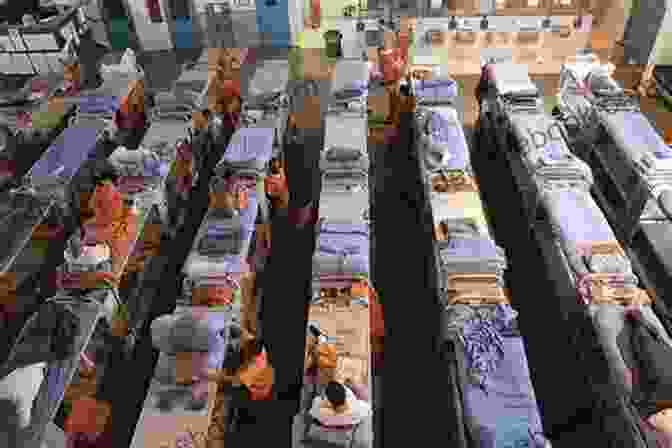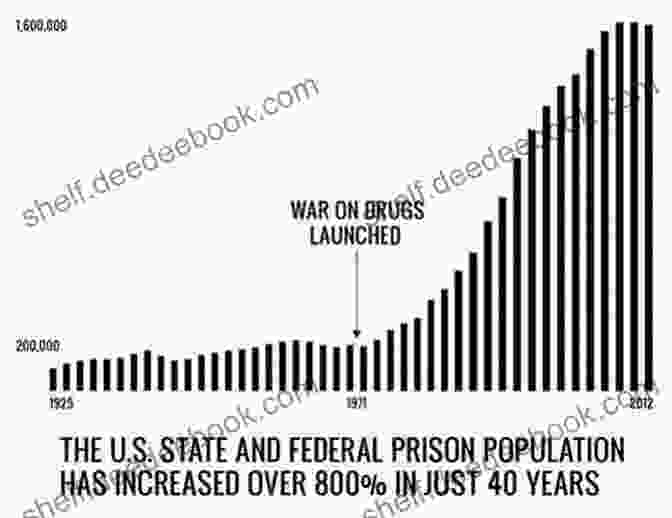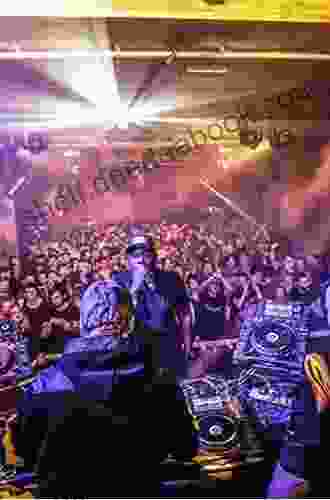Jailbreak Out Of History: Exploring the Evolving Relationship Between American Prisons and the Underground Economy

The American prison system has long been plagued by the presence of an underground economy, where contraband and illegal activities flourish behind the walls. This shadowy world has evolved over time, mirroring the broader changes in American society and the criminal justice system. From the early days of smuggling alcohol during Prohibition to the current prevalence of drug trafficking and gang violence, the prison underground economy has been a persistent feature of the American penal landscape.
The Prohibition Era: Smuggling and the Birth of the Prison Black Market
The Prohibition era of the 1920s marked a turning point in the relationship between prisons and the underground economy. The nationwide ban on alcohol created a vast illicit market, and prisons became a major hub for the smuggling and distribution of contraband liquor. Inmates, guards, and outside visitors alike participated in this illicit trade, forming networks that extended beyond the prison walls.
4 out of 5
| Language | : | Portuguese |
| File size | : | 1055 KB |
| Text-to-Speech | : | Enabled |
| Screen Reader | : | Supported |
| Enhanced typesetting | : | Enabled |
| Print length | : | 89 pages |
| Lending | : | Enabled |

The smuggling of alcohol into prisons led to the rise of prison gangs, which emerged as powerful players in the contraband trade. These gangs controlled the distribution of liquor and other illegal goods, often resorting to violence to maintain their dominance. The prison underground economy became a source of significant profit for these criminal organizations, laying the foundation for the more organized and sophisticated black markets that would develop in later decades.
Post-War America: Mass Incarceration and the Escalation of Violence
In the decades following World War II, the American prison population began to swell, largely due to the implementation of harsh drug laws and the rise of mass incarceration. This influx of prisoners created a fertile ground for the underground economy to flourish. Overcrowding, understaffing, and lack of resources made it difficult for prison authorities to control the flow of contraband and prevent violence.

The underground economy in post-war prisons was characterized by increased violence and the proliferation of illegal drugs. Gangs became more powerful and sophisticated, engaging in turf wars and other forms of criminal activity. The smuggling of weapons into prisons became common, leading to a rise in assaults and homicides. The prison underground economy evolved into a dangerous and destabilizing force, posing a significant threat to the safety and security of inmates and staff.
The War on Drugs: A Fuel for the Prison Underground Economy
The War on Drugs, launched in the 1970s, had a profound impact on the prison underground economy. The crackdown on drug offenses led to a massive increase in the number of drug-related arrests and incarcerations. This influx of drug offenders into prisons created a ready market for illicit substances, fueling the growth of the drug trade behind bars.

The drug trade in prisons became a major source of revenue for gangs and other criminal organizations. Inmates smuggled drugs into prisons using various methods, including concealed in clothing, food, and mail. The presence of drugs in prisons fueled violence and corruption, undermining the rehabilitative goals of the criminal justice system.
Contemporary Era: Technological Advancements and New Markets
In recent decades, technological advancements have had a significant impact on the prison underground economy. The proliferation of cell phones and other electronic devices has made it easier for inmates to communicate with the outside world and facilitate illicit activities. Social media platforms have also emerged as a new avenue for contraband smuggling and gang recruitment.

Furthermore, the growing demand for prescription drugs in society has created a new market for illicit prescription drug sales in prisons. These drugs are often diverted from legitimate sources outside the prison and sold at inflated prices to inmates. The prescription drug trade has added a new layer of complexity to the prison underground economy.
Consequences of the Prison Underground Economy
The presence of an underground economy in American prisons has far-reaching consequences for inmates, staff, and the broader criminal justice system. Here are some of the key impacts:
Increased Violence and Corruption
The underground economy in prisons promotes violence and corruption. Gangs and other criminal organizations use violence to control the contraband trade and maintain their dominance. Inmates may resort to violence to protect their access to contraband or settle disputes. Guards and other staff may be bribed or coerced into participating in illegal activities.
Undermining Rehabilitation
The presence of an underground economy undermines the rehabilitation goals of the criminal justice system. Inmates who are involved in illicit activities are less likely to participate in educational or vocational programs that could help them reintegrate into society. The underground economy perpetuates a cycle of crime and incarceration.
Increased Costs for Taxpayers
The underground economy in prisons imposes significant costs on taxpayers. The smuggling of contraband into prisons requires increased security measures, such as body scans, searches, and surveillance. The violence associated with the underground economy can lead to injuries and deaths, resulting in lawsuits and compensation claims. The costs of managing the prison underground economy divert resources away from other essential services.
Addressing the Prison Underground Economy
Addressing the prison underground economy requires a comprehensive approach that involves multiple stakeholders, including law enforcement, prison administrators, inmates, and community organizations. Here are some key strategies that can be implemented:
Strengthening Security Measures
Prisons can strengthen security measures to prevent the smuggling of contraband and illegal activities. This may include installing body scanners, increasing surveillance, and conducting regular searches. Improved security measures can make it more difficult for inmates to obtain illicit goods and weapons.
Expanding Rehabilitation Programs
Providing inmates with access to meaningful rehabilitation programs can reduce their involvement in the underground economy. These programs should focus on education, vocational training, and substance abuse treatment. By giving inmates the opportunity to develop skills and rebuild their lives, they are less likely to turn to crime after their release.
Reducing Overcrowding
Overcrowding is a major factor that contributes to the underground economy in prisons. By reducing overcrowding, prisons can improve safety and security, and make it easier for staff to detect and prevent illicit activities.
Community Involvement
Community organizations can play a vital role in addressing the prison underground economy. They can provide support to inmates after their release, helping them to find jobs and housing, and reduce their risk of recidivism. Community involvement can also help to reduce the stigma associated with incarceration and promote a more positive view of former inmates.
The underground economy in American prisons has evolved over time, reflecting the broader changes in American society and the criminal justice system. From the Prohibition era to the contemporary era, the prison underground economy has been a persistent feature of the American penal landscape, fostering violence, corruption, and undermining rehabilitation. Addressing this complex issue requires a comprehensive approach that involves strengthening security measures, expanding rehabilitation programs, reducing overcrowding, and engaging community organizations. By working together, we can create a safer and more just prison system that promotes rehabilitation and reduces the reliance on illicit activities.
4 out of 5
| Language | : | Portuguese |
| File size | : | 1055 KB |
| Text-to-Speech | : | Enabled |
| Screen Reader | : | Supported |
| Enhanced typesetting | : | Enabled |
| Print length | : | 89 pages |
| Lending | : | Enabled |
Do you want to contribute by writing guest posts on this blog?
Please contact us and send us a resume of previous articles that you have written.
 Book
Book Page
Page Chapter
Chapter Story
Story Genre
Genre Reader
Reader Library
Library E-book
E-book Magazine
Magazine Sentence
Sentence Bookmark
Bookmark Shelf
Shelf Glossary
Glossary Manuscript
Manuscript Scroll
Scroll Tome
Tome Bestseller
Bestseller Classics
Classics Autobiography
Autobiography Memoir
Memoir Encyclopedia
Encyclopedia Librarian
Librarian Stacks
Stacks Archives
Archives Periodicals
Periodicals Study
Study Research
Research Scholarly
Scholarly Lending
Lending Academic
Academic Rare Books
Rare Books Special Collections
Special Collections Interlibrary
Interlibrary Study Group
Study Group Thesis
Thesis Dissertation
Dissertation Storytelling
Storytelling Awards
Awards Reading List
Reading List Textbooks
Textbooks John Davies
John Davies John Henny
John Henny Dan Kennedy
Dan Kennedy Kevin Scott
Kevin Scott Lauri S Friedman
Lauri S Friedman Nadia Nicole
Nadia Nicole Tara Cousins
Tara Cousins Jimmy Elliott
Jimmy Elliott Paul Spoonley
Paul Spoonley Lesli Richardson
Lesli Richardson Martin Kalb
Martin Kalb Candace Ward
Candace Ward Roger Miret
Roger Miret Lilli Lehmann
Lilli Lehmann Nick Mcdonell
Nick Mcdonell Craig Martelle
Craig Martelle Herman Parish
Herman Parish Susanna Mittermaier
Susanna Mittermaier Anne Moss Rogers
Anne Moss Rogers Lisa Shea
Lisa Shea
Light bulbAdvertise smarter! Our strategic ad space ensures maximum exposure. Reserve your spot today!

 Wayne CarterBoys Bass and Bother: A Comprehensive Guide to the World's Best Bass Fishing...
Wayne CarterBoys Bass and Bother: A Comprehensive Guide to the World's Best Bass Fishing...
 Ignacio HayesNavigating the Digital Frontier: A Comprehensive Guide to Digital Startups in...
Ignacio HayesNavigating the Digital Frontier: A Comprehensive Guide to Digital Startups in... Jaylen MitchellFollow ·10.5k
Jaylen MitchellFollow ·10.5k Roy BellFollow ·9k
Roy BellFollow ·9k Warren BellFollow ·12.7k
Warren BellFollow ·12.7k Roger TurnerFollow ·6k
Roger TurnerFollow ·6k Jared PowellFollow ·11.3k
Jared PowellFollow ·11.3k Gage HayesFollow ·15.7k
Gage HayesFollow ·15.7k Colby CoxFollow ·5.9k
Colby CoxFollow ·5.9k Steven HayesFollow ·16k
Steven HayesFollow ·16k

 Beau Carter
Beau CarterLater Political Writings: A Window into the Evolution of...
Political thought, like...

 Tyrone Powell
Tyrone PowellThe Essential Guide to Family School Partnerships:...
: The Importance of...

 Christian Barnes
Christian BarnesAdvancing Folkloristics: Conversations with Jesse...
Dr. Jesse Fivecoate is an...

 Jake Carter
Jake CarterHal Leonard DJ Method Connell Barrett: A Comprehensive...
Are you ready...

 John Updike
John UpdikeCondensed Review of Pediatric Anesthesiology Second...
Condensed Review of...

 Guillermo Blair
Guillermo BlairExploring the Complexities of Motherhood and Identity: A...
Elena Ferrante's "The Lost...
4 out of 5
| Language | : | Portuguese |
| File size | : | 1055 KB |
| Text-to-Speech | : | Enabled |
| Screen Reader | : | Supported |
| Enhanced typesetting | : | Enabled |
| Print length | : | 89 pages |
| Lending | : | Enabled |








